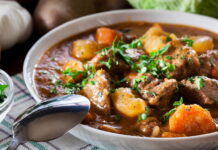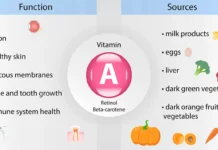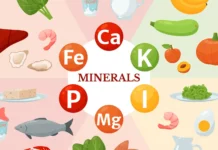Fitness and Nutrition. What is the menu which successful athletes include in his diet and how do the transformations of the body happen that amaze us?
Here are answers from the experts who know how training, diet and supplements work together for the best and lasting results.
Eat according to your level of physical activity
When you are physically active, your body will use more energy (calories). If you want to control your weight within a certain range and do not want to lose weight, you may find that you need more food to restore the extra energy used. It’s important to stay hydrated – at least 2 liters of water and unsweetened non-carbonated fluids a day will keep you fit.
If you stick to the right nutrition for you, you will achieve higher results, reduce the risk of injury, contusions, general ailments, ensure the best recovery after training.
But nutritional regimes are as universal as they are based on the same principles, they are also individual – they depend on the state of the organism of each individual, on the amount and intensity of his activity. Therefore, it is important not to blindly trust diets, but to have a preventive examination, to be aware of your allergies, of your diseases, if you have them, and only then to undergo a certain nutritional or sports regime.
Eating in the right proportions
The most effective weight loss programs include both a controlled diet and increased physical activity.
The benefits of physical activity go beyond simply burning calories. The combination helps to preserve and strengthen muscles while losing weight, increases muscle mass and this shapes the figure, gives strength. If you increase your physical activity and spend less time sitting, you will also reduce your risk of chronic diseases, such as heart disease. The right combination for successful weight control, tone and energy includes carbohydrates, proteins, fats in a certain proportion.
Fitness and Nutrition – distribution of nutrients

According to Dietary Guidelines for Americans, 2020–2025 the ratio between them for an adult should be as follows:
- Carbohydrates: 45-65% of all calories consumed;
- Proteins: 10-35%;
- Fat: 20-35%;
Carbohydrates provide energy. If an athlete’s diet does not contain enough carbohydrates, their performance and recovery are likely to be impaired. They are the main fuel for the brain and muscles during exercise. The body can store carbohydrates in the muscles and liver in the form of glycogen. It serves as a fuel source for physical activity. These glycogen stores must be fully charged at the start of each workout.
The right choice of foods rich in carbohydrates ensures that the body has enough energy for physical activity and for successful recovery. Starchy foods are an important source of carbohydrates in our diet. Whole grains provide fiber and a range of vitamins and minerals, including B vitamins, iron, calcium and folate. Sugars are also carbohydrates, so it’s important to limit certain fruits, carbonated and flavored drinks.
Fitness and Nutrition – activity
If you are active around the recommended levels – 150 minutes of moderate activity or 75 minutes of high-intensity activity plus two muscle-strengthening workouts per week, then choose whole grains that are high in fiber. For good digestion, choose pre- and probiotics that promote the microbiome.
Protein is important for athletic performance because it can increase glycogen storage, reduce muscle soreness, and promote muscle recovery. For those who are active on a regular basis, it is important to include at least one serving of protein in each meal so that it is spread throughout the day. Because some high-protein foods are also high in saturated fat, such as fatty meats or higher-fat dairy products, stick to lower-fat foods such as chicken.
Most vegans get enough protein from their diet, but it’s important to eat a variety of plant-based proteins with enough essential amino acids. Hydrolyzed collagen compensates for the lack or deficiency of proteins in the body and brings many benefits for both health and beauty.
A common misconception is that increased protein intake alone increases muscle mass. Over-focusing on eating high-protein foods can also mean not having enough carbohydrates, which are a more efficient source of energy for exercise. Higher protein intake can increase energy (calorie) intake, which can lead to excess weight.
Current dietary protein recommendations are 0.75 g of protein per kg of body weight per day for adults. But most people consume more. If you exercise regularly, lift weights, then you need more protein. With them, you promote the growth and recovery of muscle tissue. For strength athletes, protein requirements increase to about 1.2-2.0 g of protein per kilogram of body weight per day.
Fats are also important in small amounts because they are high in calories. Eating too much fat can lead to excess calorie intake, causing weight gain. Foods rich in fat generally contain saturated and unsaturated fatty acids, but those with higher amounts of unsaturated fat and less saturated fat are preferred. Replacing saturated fat with unsaturated fat can lower blood cholesterol, which limits the risk of heart disease and stroke.
Nutritional supplements and sports
The main reasons people take nutritional supplements are to correct or prevent a nutrient deficiency that could damage their health or affect their athletic performance. Each athlete must weigh the potential benefits against the possible negative effects on their health or performance, the risk of accidental doping, or the likelihood of consuming toxic levels of substances (such as caffeine).
Therefore, we recommend taking pure supplements in their recommended dosage or after consulting a doctor. Among the most popular pure nutritional supplements among athletes are collagen and magnesium. Collagen builds muscles and supports recovery after training, injuries, strengthens joints and bones. Magnesium prevents cramps and restores tone. To learn more about fitness and nutrition follow us on Facebook and come back on this category for new articles.













